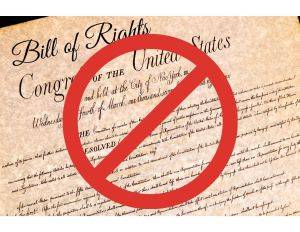Recent Blog Posts
When Is a QDRO Used in a Wisconsin Divorce?
 Couples who choose to legally dissolve their marriage through divorce will need to address many different legal, financial, and practical issues. The division of marital property is one of the key issues that will need to be resolved, and all of the assets and debts that a couple acquired while married will need to be divided as fairly and equitably as possible. While determining how to divide some assets can be a straightforward process, complex financial issues may arise when addressing certain types of assets, including retirement accounts and pension benefits. When dividing these assets, a couple will usually want to use a Qualified Domestic Relations Order, or QDRO.
Couples who choose to legally dissolve their marriage through divorce will need to address many different legal, financial, and practical issues. The division of marital property is one of the key issues that will need to be resolved, and all of the assets and debts that a couple acquired while married will need to be divided as fairly and equitably as possible. While determining how to divide some assets can be a straightforward process, complex financial issues may arise when addressing certain types of assets, including retirement accounts and pension benefits. When dividing these assets, a couple will usually want to use a Qualified Domestic Relations Order, or QDRO.
Using a QDRO to Divide Retirement Savings and Benefits
Retirement benefits usually fall into one of two categories: defined contribution plans and defined benefit plans. Defined contribution plans usually take the form of retirement savings accounts, such as a 401(k), and the value of these assets is usually easy to determine based on the current balance of the account. Defined benefit plans such as pensions can be more difficult to value, since the amount that will be paid when a person begins receiving benefits usually will not be known until a person retires. A QDRO can be used to divide both of these types of assets between divorcing spouses.
How Do Easements Affect Real Estate Transactions and Litigation?
Real estate transactions can be very complicated, and there are multiple types of legal issues that buyers and sellers will want to be aware of. Easements are one issue that will affect how a piece of property can be used. If easements are not properly disclosed during a transaction, real estate litigation may be required to address this issue.
Understanding Easements
An easement is a legal agreement that gives a person, company, or organization the right to use someone else’s property. Easements come in several forms, including:
- Public easements - A portion of a person’s property may be set aside for public use. These easements may address utilities, ensuring that the government or private utility companies can access a property to install or repair power lines, water lines, or other types of utilities.
- Private easements - A private individual may be given permission to use someone else’s property for certain purposes. For example, a person may have been granted the right to hunt and fish on someone else’s property, or a person may have been allowed to enter a neighbor’s property to access a lake or river.
What Are the Benefits of Using Mediation to Resolve Civil Disputes?
 There are many different situations where legal disputes may arise between two or more parties. While civil litigation may be used to resolve these disputes, this process can be very expensive and time-consuming, and neither party may be fully satisfied with the decisions made by a judge or jury. As an alternative to litigating matters in the courtroom, the parties in these types of disputes may want to consider using mediation to reach an out-of-court settlement.
There are many different situations where legal disputes may arise between two or more parties. While civil litigation may be used to resolve these disputes, this process can be very expensive and time-consuming, and neither party may be fully satisfied with the decisions made by a judge or jury. As an alternative to litigating matters in the courtroom, the parties in these types of disputes may want to consider using mediation to reach an out-of-court settlement.
Benefits of Civil Mediation
By using mediation, the parties can often save a great deal of money that would otherwise have gone toward court costs and attorney’s fees. In cases where one party is seeking payment from the other, such as those involving personal injuries or breach of contract, mediation can increase the amount that the plaintiff will be able to recover while helping minimize costs for the defendant.
Can Third Parties Be Held Liable for Injuries in Drunk Driving Accidents?
The simple answer to this question is “yes”. Alcohol or drug use can have a huge impact on a person’s ability to safely operate a motor vehicle. While the dangers of driving while under the influence are well-known, many people still do so. This can lead to dangerous car accidents. While a drunk driver may be held liable for injuries inflicted in these types of accidents, victims may wonder whether other parties may also be civilly or criminally liable. The answer to this inquiry is “it depends.”
Social Host Liability Laws in Wisconsin
“Social hosts” are people who serve alcohol to others, either in their home, at a venue or other place, e.g., at a work or office party.
Unlike Illinois, which is a dram shop law state, Wisconsin law provides that a person or establishment that procures, sells, dispenses, or gives away alcoholic beverages to another is generally immune from civil liability for acts that arise due to the consumption of alcohol. Wis. Stat. § 125.035(2). However, there are several important exceptions to this immunity.
Understanding Your Right to an Attorney in a Wisconsin Criminal Case
Getting arrested or charged with a crime can be extremely frightening and stressful, and it may feel like you have nowhere to turn for help and support. However, thanks to the Sixth Amendment to the United States Constitution, there is always at least one person whom you can rely on: your attorney. Among other rights, the Sixth Amendment guarantees a criminal defendant the right to “the assistance of counsel for his defense.” If you are facing charges, you should be sure to understand the full extent of the protection that this clause provides.
What Does the Right to Legal Counsel Include?
The Sixth Amendment right to legal counsel means that in a trial or court hearing related to the charges you are facing, you have the right to representation from a qualified defense attorney. Your attorney can take many important actions to protect your rights and help you avoid conviction or an unfair sentence. For example, they can speak on your behalf in opening and closing arguments, help you present evidence and testimony to demonstrate your innocence, cross-examine witnesses for the prosecution, and object to inadmissible evidence and improper trial procedure.
5 Reasons Not to Represent Yourself in Wisconsin Family Court
If you are getting a divorce or attempting to establish a child support or child custody order with your child’s other parent, you may have at least considered the idea of representing yourself throughout the legal process. Perhaps you are worried about the costs of hiring an attorney, or you may feel that you and the other party are in agreement to the extent that legal representation is not necessary. However, choosing to represent yourself can have many unexpected consequences, and it may prevent you from achieving your desired outcome. Here are five reasons why trying to represent yourself in Wisconsin family court could be the wrong decision:
Representing Yourself Is a Large Time Commitment
If you decide to represent yourself, you will need to be prepared to invest a substantial amount of time in your case. Ensuring that you are well-informed about the legal process may require many hours of research, and you will also need to be present for all required court hearings and appearances. If you have other important time commitments, like working a job or caring for your children, finding time to represent yourself can be difficult.
Is Intoxication a Valid Defense Against Criminal Charges in Wisconsin?
The intoxicating effects of alcohol and controlled substances (prescription and illegal) have been demonstrated to lower a person’s inhibitions, alter behavior, and impair a person’s mental and physical abilities, including the ability to operate motor vehicles steadily and safely. Unfortunately, alcohol and substance use sometimes lead to situations where a person is arrested on criminal charges. For example, in State v. Christen, 2021 WI 39, the Wisconsin Supreme Court held that the Second Amendment does not protect an intoxicated person's right to possession of a firearm for self-defense, in a drunken altercation with roommates inside defendant’s residence).
If you have been arrested while under the influence of drugs or alcohol, you may wonder whether your state of intoxication could be a mitigating factor or perhaps even be raised as a defense that might help avoid a conviction. At first glance, it seems reasonable that the effects of a substance on a person’s mental state would impact on specific intent and possibly absolve you of personal responsibility for your actions. However, in Wisconsin, this is only true under limited circumstances, because the legislature and courts have determined that the intoxication defense should be greatly limited on public policy grounds. Thus, it is important that you work with an experienced and knowledgeable criminal defense attorney to determine whether such a defense may apply in your case.
How Are Damages Awarded in a Wisconsin Wrongful Death Case?
In Wisconsin, injury victims have the right to file a personal injury claim seeking compensation from the negligent parties who were responsible for their damages. Unfortunately, not all injury victims survive long enough to initiate the process, let alone benefit from the compensation. However, this does not mean that there is no way of holding the negligent party accountable. The victim’s surviving family members can also pursue compensation through a wrongful death lawsuit. If you have recently lost a loved one due to someone else’s negligence, you should be sure to understand your rights to pursue financial compensation.
Protections for Minor Children of the Deceased
According to Wisconsin law, a wrongful death action must be initiated by either the personal representative of the victim’s estate, or the victim’s next of kin who is entitled to compensation. Often, this is the victim’s spouse or domestic partner. However, when the victim has children under the age of 18 at the time of their death, the court responsible for hearing the wrongful death case will seek to ensure that those children have access to the resources they need now that their parent is no longer able to provide them. When determining an appropriate amount to set aside, the court will consider factors including the children’s ages and needs, as well as the capacity of a surviving parent to provide for them.
Establishing Paternity in Wisconsin by Genetic Testing
Until recently, Wisconsin parents seeking to establish the legal paternity of a child could do so in one of three ways. Two of those methods, a Voluntary Paternity Acknowledgment and an Acknowledgment of Marital Child, require the consent of both parents, which is not easy to obtain when the parents are in disagreement. The third method, petitioning for a court hearing, can help to resolve disagreements between parents, but it may come with a significant investment of time and money on the part of the parties to the case.
However, since August 2020, a new method known as Conclusive Determination of Paternity can help parents resolve paternity cases without requiring the extensive involvement of the court. If you are an unmarried or alleged parent, it is a good idea to learn about the process of conclusive determination to understand how it could affect your case.
What Is the Process for a Conclusive Determination of Paternity?
The process of establishing paternity by conclusive determination is handled through the child support agency in the county with jurisdiction over the case. The agency itself may initiate the proceedings if it has reason to believe that a man may be a child’s father, or the process can be initiated at the request of a child’s mother or alleged father. In order to determine paternity, the child support agency has the authority to order genetic testing of the mother, the alleged father, and child.
Common Injuries in Wisconsin Rollover Accidents
Rollover accidents can happen for a number of different reasons, and injuries suffered by vehicle occupants are often severe. Though vehicle safety features are continuing to improve in order to better protect drivers and passengers, the force of multiple impacts is still capable of injuring nearly every part of the body, potentially resulting in high medical bills and a long, difficult recovery process. If you have suffered serious injuries in a rollover car crash, it is important to determine whether you can pursue compensation from a negligent party.
Rollover Injuries Vary in Nature and Severity
The National Highway Traffic Safety Administration (NHTSA) and other research organizations have studied rollover accidents extensively over time in order to better understand their outcomes and promote measures to mitigate injuries. Through their research, they have determined that certain types of injuries are more common depending on the characteristics of the crash. Some of the most frequently occurring injuries include:

 By
By 





